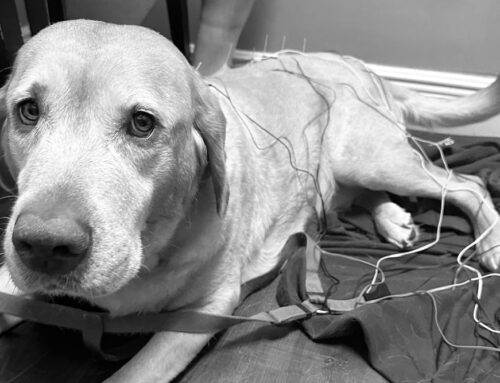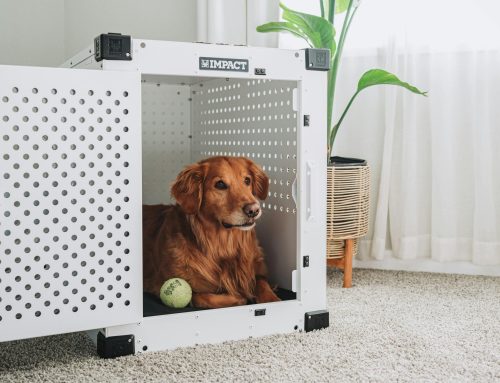With hurricane season fast approaching, you may find yourself anxiously waiting to see what 2018 will bring. Will it be another year of storm shutters and news reporters telling us to “hunker down,” or will we have a year of storm-free summer fun? Either way, it is always best to be prepared, and with May being National Hurricane Preparedness Month, what better time is there than now to get started?
We all probably have our standard checklist when we hear a hurricane is on its way; buy protein bars, water, batteries, flashlights, download the latest season of our favorite show on Netflix…Our pets actually have similar checklists to help them get through the storm or evacuate to safety. In an effort to get you and your pet ready for this upcoming summer and storm season, we have put together Disaster Preparedness Kits with information on everything from pet packing lists to fire safety for you to pick up from our office located at the corner of Countryway Blvd and Racetrack Rd in Westchase. Alternatively, we can email most of this information to you upon request.
While these checklists were created to prepare for natural disasters, they can also be used for any situation where your pet may have to travel quickly or have others watch them. For instance, you may have to leave town abruptly for a family emergency, unexpected business trip or, better yet, a spontaneous vacation, leaving your pet under the care of their favorite neighbor or family member. Having all necessary care instructions and a go bag already put together for your pet makes these last minute changes much less stressful for both you and your four-legged friend.
My Preparation Plan:
- ID Your Pet: Make sure your pet wears a collar with an external tag. At a minimum, the tag should include your pet’s name and your phone number
- Microchip Your Pet: Having your pet microchipped greatly increases your chance of being reunited with him after an emergency. This can be done at most veterinary facilities.
- Register the Microchip: Many pets who have a registered microchip will have out-of-date information. Some registration companies also require annual renewal fees, which may be overlooked. We recommend www.safethislife.com for a one-time, life-long registration.
- Vaccinate Your Pet: During an evacuation, pets are very likely to interact with other animals, whether they be dogs or cats of extended family or animals also seeking refuge in a shelter. This may greatly increase your pet’s risk of exposure to diseases like canine flu, feline upper respiratory disease, and even leptospirosis.
- Plan with Neighbors and Friends: Find a neighbor who is willing to care for your pet if you are not home or cannot make it safely home in the event of an emergency. Leave a spare key with this trusted neighbor or nearby friend
- Find a Safe Place: It is always safest to have several evacuation plans in place. Check with family members, hotels, and shelters now to see if they are pet-friendly. Keep an up-to-date list of possible evacuation locations.
My Packing Checklist
- Food and water for at least 10-14 days with collapsible bowls
- Medical Records: Try to have a printed copy of your pet’s pertinent medical records, microchip information, and vaccine history in a waterproof cover.
- Recent Photos: Recent photos of your pet, or better yet, you with your pet will be important if you and your pet are separated or you need to prove ownership.
- Medications: Have at least 2 weeks of any medications your pet takes in original containers with easily legible dosing instructions.
- Care Instructions: In case it is someone other than you who has to care for your pet in an emergency, keep a single record with your pet’s feeding schedule, medical or behavioral conditions, medication dosing, and name/number of your veterinarian.
- Pet Beds and Toys: Storms or other natural disasters can be quite scary for our canine and feline friends. Having familiar items such as beds or toys to play with may allow our pets to feel more at ease.
- Soap: Dawn dish soap to wash food and water bowls, litter pans and in a pinch, your pet.
Dog Specific Checklist
- Extra Leash and Harness/Collar
- Plastic Bags for Cleanup
- Towels for Drying or Cleanup
- Portable Crate
Cat Specific Checklist
- Plastic Carrier with Removable Lid
- Disposable Litter Tray (Aluminum Roasting Pan)
- Extra Litter or Disposable Baby Changing Pads
- Extra Towel for your cat to hide or to use to wrap your cat while giving medications.






Leave A Comment